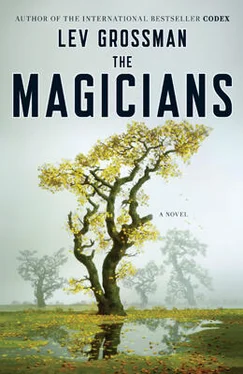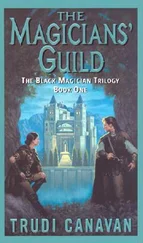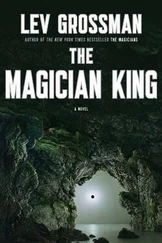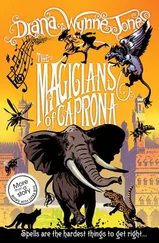He recognized it right away, mixed in with a jumbled consignment of grubby costume jewelry, in a plastic bag tied with a twisty. He didn’t know what it was, but its power was obvious even to his untrained eye.
He motioned Penny over to a corner, reached into the pocket of his seedy overcoat, which he hadn’t taken off all night, and laid the Baggie on a round particleboard bar table. He grinned his livid, discolored grin at Penny. The buttons were ordinary surplus vintage buttons: two holes, four holes, fake leather, fake tortoiseshell, big angular novelty knobs, and tiny bakelite pin-pricks. A few of them were just leftover beads. Penny’s eye immediately went to one of them, a flat, otherwise unremarkable pearlescent-white overcoat button about an inch across. It was heavier than it should have been. It practically vibrated with barely contained magical force.
He knew what it was. He knew better than to touch it.
“A magic button?” Janet said. “How weird. What was it?”
Her hair was a disaster, but she was obscenely relaxed, sipping coffee in an armchair, showing off her legs in a short silk bathrobe. She obviously felt triumphant, relishing her conquest, and by extension her victory over Alice. Quentin hated her at that moment.
“You really don’t know?” Penny said.
Quentin thought he had a guess, but he wasn’t going to say it out loud.
“What did you do?” he said instead.
“I made him come back with me to my house. That night. He wasn’t safe where he was, and at least I had a basic security setup. We called the woman who sold him the consignment, but she insisted the buttons weren’t in her records. The next day we went and got his stuff and drove to Boston, and I gave him eighty thousand dollars for it. He wouldn’t take cash, just gold and diamonds. I practically cleaned out a Harry Winston, but it was worth it. Then I told him to fuck off, and he did.”
“Eighty thousand dollars,” Eliot said, “wouldn’t clear out a display case at a Zales, let alone a Harry Winston.”
Penny ignored him.
“That was two days ago. That button attracts attention. I was staying at a hotel in Boston, but last night a fire two floors above me killed a cleaning lady. I never went back to my room. I took the Fung Wah bus from South Station. I had to walk here from Chinatown; whenever I got in a cab the engine would die.
“But what matters is that it’s real, and it’s ours.”
“Ours? Who are ‘we’?” Richard asked.
“You,” Quentin said coldly, “are a fucking nutjob.”
“Quentin gets it,” Penny said. “Anybody else?”
“Q, what is he talking about?”
A silent spear of pure, glittering ice entered Quentin’s heart. He hadn’t heard Alice come in. She stood at the edge of the circle, her hair unwashed and adrift, like a sleepy child who wakes in the middle of the night and appears like an uncertain spirit at the edge of a grown-up party.
“He doesn’t know what he’s talking about,” Quentin muttered. He couldn’t look at her. He was drowning in remorse. It almost made him angry at her, how much it hurt to look at her.
“Do you want to explain it or should I?” Penny said.
“You do it. I’m not going to be able to say it without laughing my head off.”
“Well, somebody say something, or I’m going back to bed,” Eliot said.
“Ladies and gentlemen,” Penny said, gravely and grandly, “we are all going to Fillory.”
At the end of The Wandering Dune —Penny began; it was a lecture he had obviously rehearsed — Helen and Jane Chatwin receive a gift from High-bound, the captain of the rabbit-crewed clipper ship that the girls encounter in the desert. The gift is a little brass-bound oak chest containing five magical buttons, all different shapes and colors, one for each of the Chatwins, each with the power to take the wearer from Earth to Fillory and back again at will.
Everybody in the room had read the Fillory books, in Quentin’s case multiple times, but Penny rehearsed the rules anyway. The buttons don’t take you directly there: first they move you to a kind of in-between nether-world, an interdimensional layover, and from there you can make the leap to Fillory.
No one knows where this transitional world is. It may be an alternate plane of existence, or a place between planes, interleaved between them like a flower pressed between pages, or a master plane that contains all planes — the spine that gathers the pages and binds them together. To the naked eye it looks like a deserted city, an endless series of empty stone squares, but it serves as a kind of multidimensional switchboard. In the center of each square is a fountain. Step into one of them, the story goes, and you’ll be transported to another universe. There are hundreds of different squares, possibly an infinite number, and a corresponding number of alternate universes. The bunnies call this place the Neitherlands — because it’s neither here nor there — or sometimes just the City.
But the most important point, Penny said, is that at the end of The Wandering Dune Helen hid all the buttons somewhere in her aunt’s house in Cornwall. She felt they were too mechanical, they made the journey too easy. Their power was wrong. You shouldn’t be able to just go to Fillory whenever you wanted, like catching a bus, she argued. A trip to Fillory had to be earned, that had always been the way. It was a reward for the worthy, bestowed by the ram-gods Ember and Umber. The buttons were a perversion of this divine grace, a usurping of it. They broke the rules. Ember and Umber couldn’t control them. Fillory was fundamentally a religious fantasy, but the buttons weren’t religious at all, they were magical — they were just tools, with no values attached. You could use them for anything you wanted, good or evil. They were so magical they were practically technological.
So she hid them. Jane was inconsolable, understandably enough, and tore up half the property looking for them, but according to The Wandering Dune she never found them, and Plover never wrote any more books.
The Wandering Dune ends in the summer of 1917, or possibly 1918; because of the lack of real-world detail it’s impossible to date it precisely. After that the whereabouts of the buttons is unknown. But try a thought experiment, Penny suggested: How long could a box of buttons hidden by a twelve-year-old girl plausibly have stayed hidden? Ten years? Fifty? Nothing stays hidden forever. Wasn’t it possible — even inevitable — that in the decades that followed a maid or a real estate agent or another little girl would have found them again? And that from there they would have made their way onto the magical gray market?
“I always thought they were supposed to be lapel buttons,” Richard said. “Like a pin. Like ‘I Like Ike.’ ”
“Um, okay, so let’s back up for a second?” Quentin said cheerily. He was in the perfect mood for somebody, anybody besides himself, to make an ass of himself, and if that person could be Penny, and if Quentin could help him do it, then ever so much the better. “The Fillory books are fiction? Nothing you’re talking about actually happened?”
“Yes and no,” Penny said, surprisingly reasonably. “I’ll allow that much of Plover’s narrative might be fictional. Or fictionalized. But I’ve come to believe that the basic mechanics of interdimensional travel that Plover describes are quite real.”
“Really.” Quentin knew Penny well enough to know that he never bluffed, but he kept going anyway out of pigheadedness, urged on by his own inner vileness. “And what makes you think that?”
Penny regarded him with benevolent pity as he prepared the hammer blow.
“Well, I can certainly tell you that the Neitherlands are very real. I’ve spent most of the past three years there.”
Читать дальше












